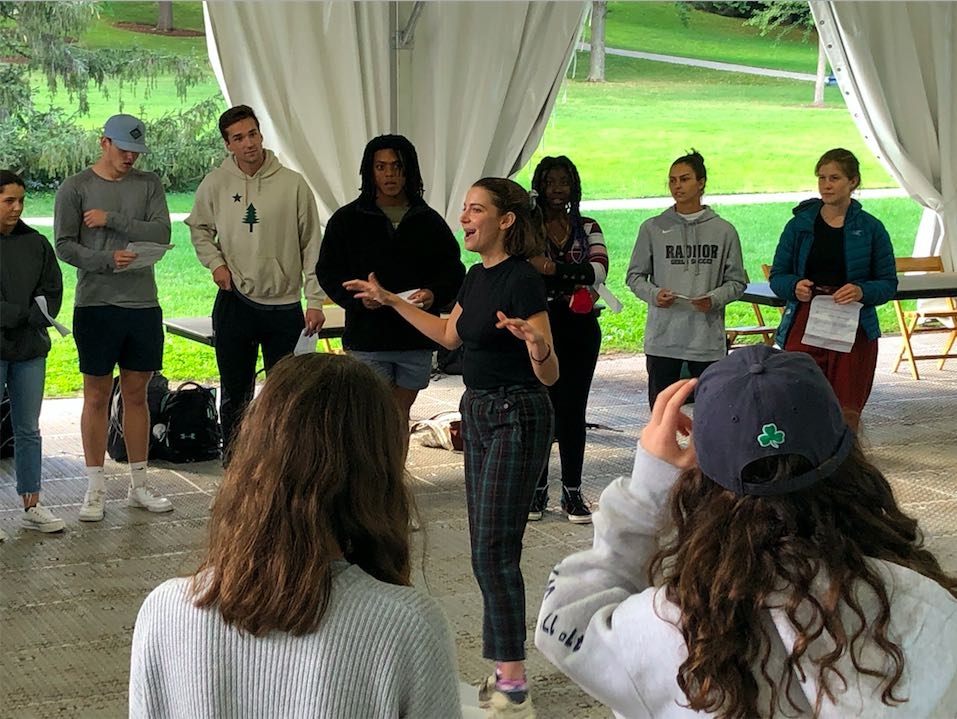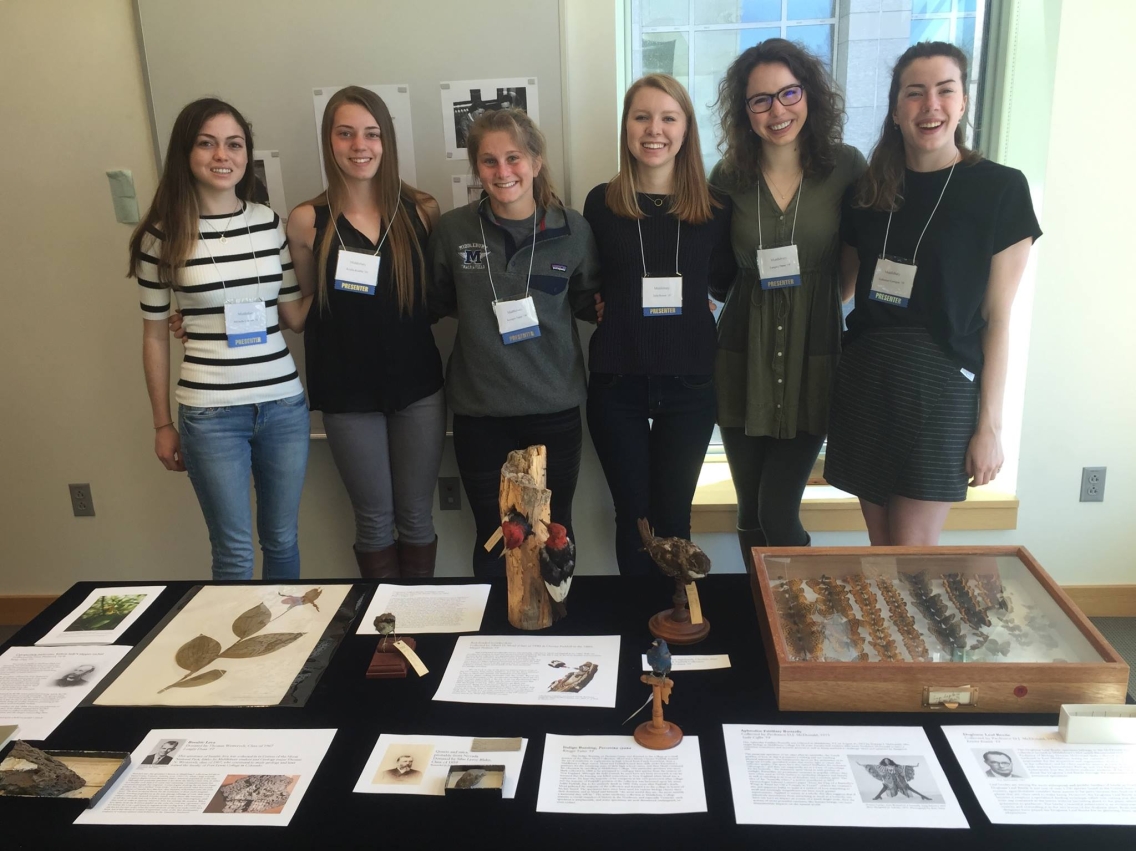For Students


Sophie Hiland ‘22.5 explains why she is an American Studies major
I love being an American Studies major because it gives me the opportunity to study so many different aspects of American culture, literature, and history. Through the major, I’ve been able to engage in a diverse selection of courses with a common thread that runs through all of them. The American Studies Program has introduced me to intellectual materials and concepts that I find relevant to a variety of elements of my personal and professional experiences. I really appreciate that the major is incredibly flexible and allows majors to pick their courses based on their own academic interests within the broader area of study.
Frequently Asked Questions
What is American studies?
American Studies explores cultures of the United States using a mode of inquiry that moves beyond the scope of any single disciplinary approach. American Studies courses at Middlebury examine constructions of Americanness through topics including identity and difference, the cultures of everyday life, commercial and political exchanges, and the boundaries of national belonging.
Another way of answering the question, “What is American Studies?” is this: As an American Studies scholar at Middlebury, you are helping to define the field. In bringing your own experiences and insights to the conversation about the United States and its global impact,you can decide what American Studies will be.
I’m new to American studies. Where do I begin?
American studies offers a range of 100-level courses designed to introduce students to the field. However, very few courses have prerequisites, so you can begin with almost any AMST course that particularly interests you. If you don’t start with one of our 100-level courses, you might consider a conversation with your professor about how their class fits into the bigger picture of both the American Studies major and the field.
Why major or minor in American studies?
American Studies empowers students:
- to develop the skills to think critically about the place of the United States in the world.
- to integrate different kinds of study to understand American cultures, past and present.
- to learn more about the cultural history of the U.S., from music and material culture to social justice movements and mass media.
- to challenge common wisdom about the meanings of America and Americanness.
- to pursue their own stories in relation to Americanness.
- to cultivate skills central to a wide range of careers.
Whom do I contact to learn more about the American studies major?
Students interested in majoring in American studies are encouraged to look at the requirements for the major and the information on our areas of concentration. Students may also contact any of our core faculty as well as the program chair.
Can American studies students study abroad?
Many students at Middlebury choose to study abroad for a semester or year. Learn more about the opportunities and programs at the Study Abroad Office.
What are the areas of concentration in American studies?
Concentrations bring together coherent clusters of four courses that address particular themes, periods, movements, or modes of thought and expression. In consultation with an advisor and with approval of the program, students will develop an interdisciplinary concentration in one of these areas:
Popular Culture
Students will study popular cultural forms, their reception, and the history of their production in the United States. Courses will especially focus on the conflicts between popular culture as a site of creativity and democratic empowerment on the one hand, and as a product of dominant commercialized cultural industries on the other.
Race and Ethnicity
Students will examine specific groups in depth and in comparison, exploring racial and ethnic history, political struggles, creative and cultural practices, and individual and collective modes of identity formation. By studying how and why racial and ethnic identities have evolved in the United States, students will understand their central place in the formation of the American nation.
Artistic and Intellectual Traditions
Students will focus on literary, religious, philosophical, and social thought and its expression in the United States. They will be encouraged to examine particular currents of thought (e.g., evangelicalism, liberalism, romanticism, modernism, progressivism) or modes of expression (e.g., literature, visual art, or film) that have been important to American culture.
Space and Place
Students will explore the importance of landscape and place in American culture. Coursework may include the study of American regional geography, the historical and aesthetic dimensions of the built environment, the impacts of urban growth, suburbanization, or the imagining of utopian spaces.
Cultural Politics
Students will explore the relationship between culture, ideology, and the political system. People create meaning about their personal and public lives through cultural practices, but those practices take place within institutional and ideological structures. Relevant courses might explore ethics and religion; political parties and social movements; feminism and gender studies; and representation and visual culture.
Self-Designed Concentration
Self-designed concentrations must be built in close consultation with a faculty advisor and should focus on a cultural theme or interdisciplinary area of inquiry. Potential topics might include gender and American culture; American environmentalism; visual culture; industrialization of America; and immigration and cultural exchanges.
What can I do with an American studies degree?
The distinctive interdisciplinary approach of American Studies fosters well-rounded intellectual development, a sense of curiosity and inquisitiveness, and strengthens your ability to recognize connections among complex materials and diverse phenomena. Majors develop valuable career skills in research, writing, analysis, argumentation, and documentation, and are primed to pursue a broad range of satisfying career options. While a small percentage of American Studies majors will go on to pursue an advanced degree in the field, most go into other professions, such as:
- Teaching and education-related fields, including libraries, educational administration, etc.
- Business and entrepreneurship
- Law
- Communications, public relations, journalism
- Public service
- Museums and cultural institutions

